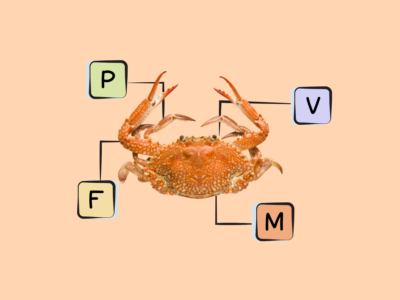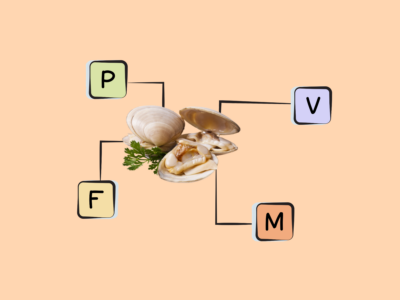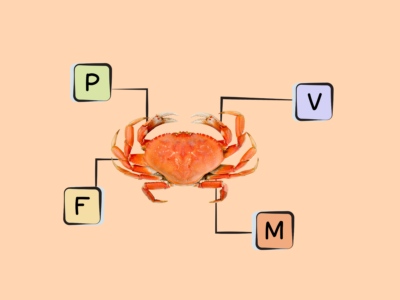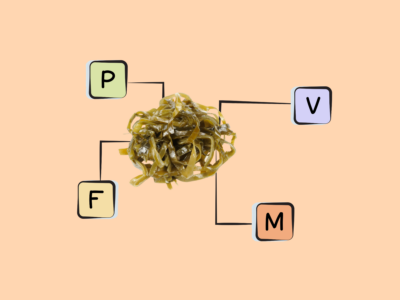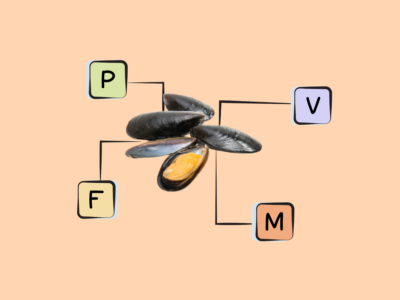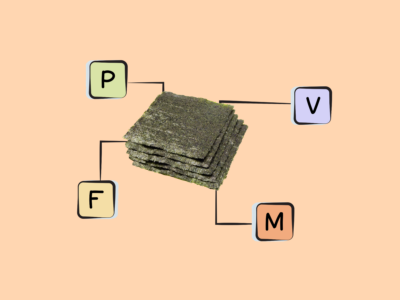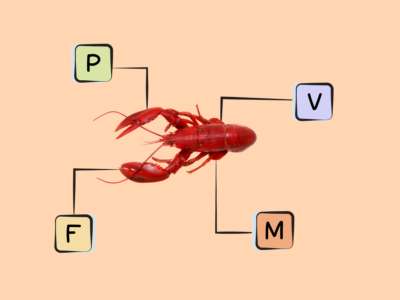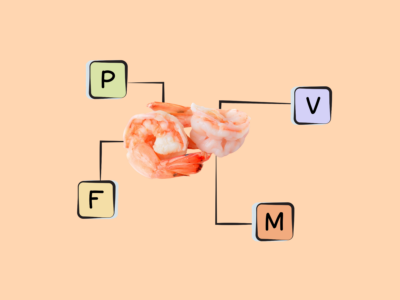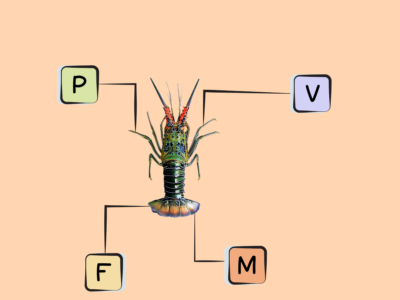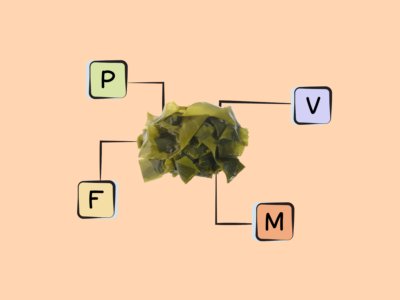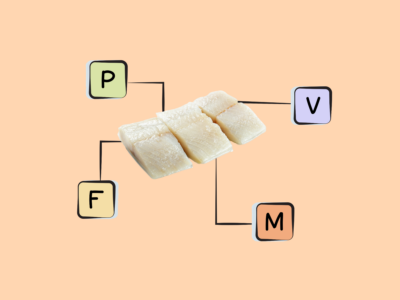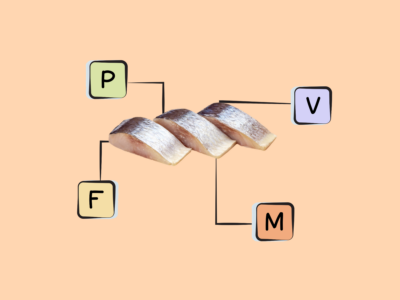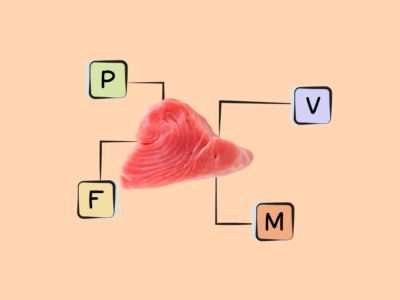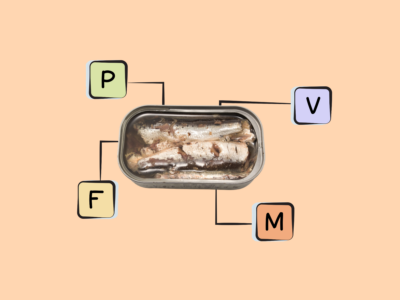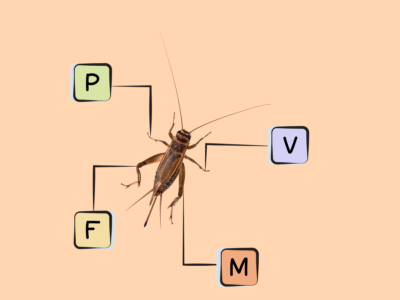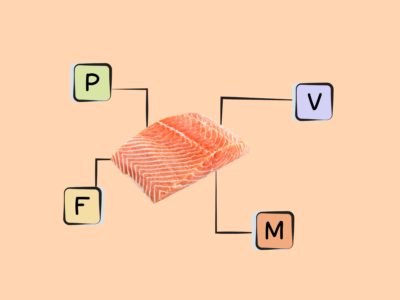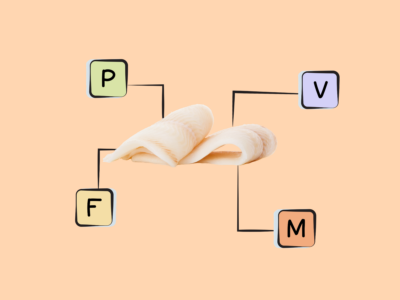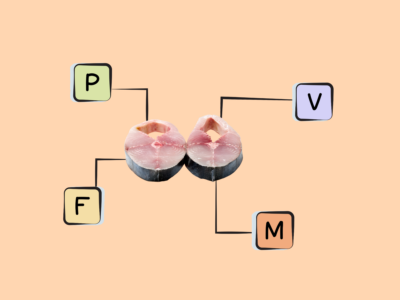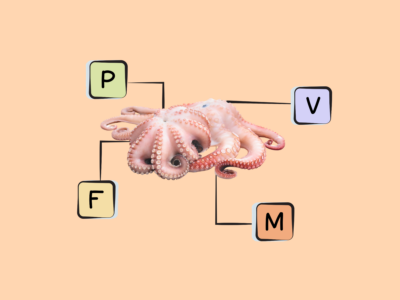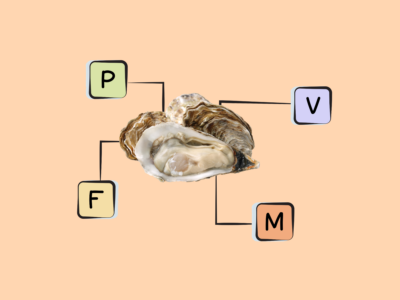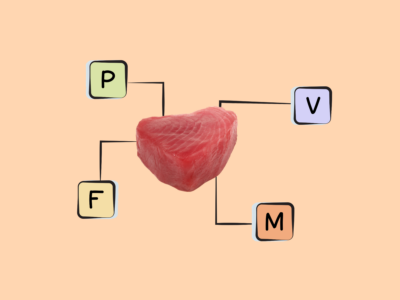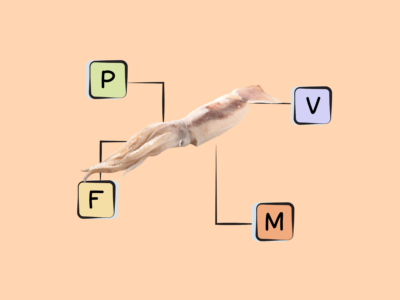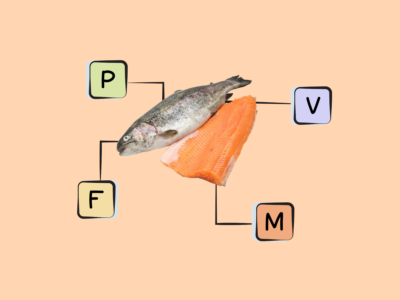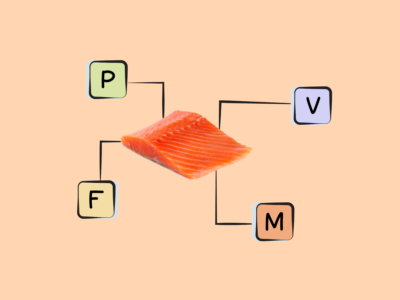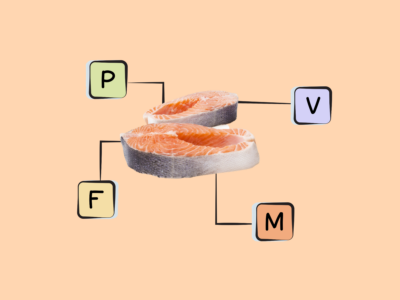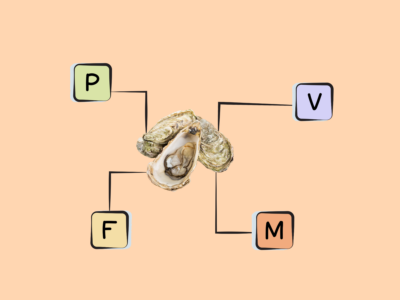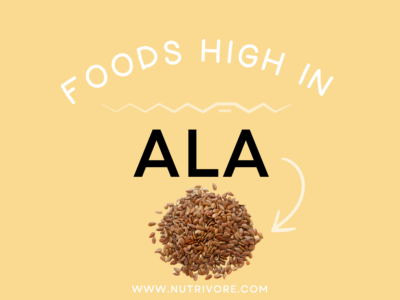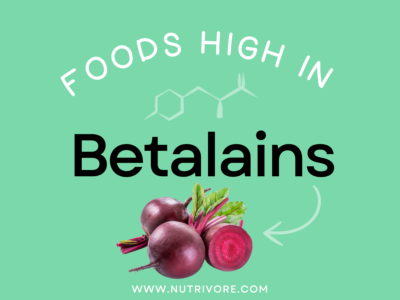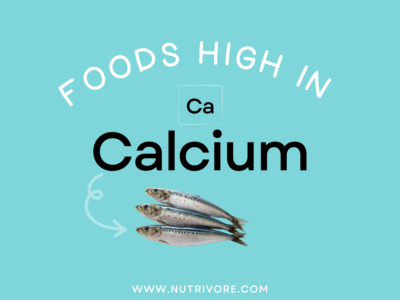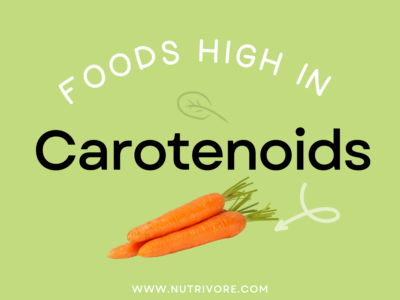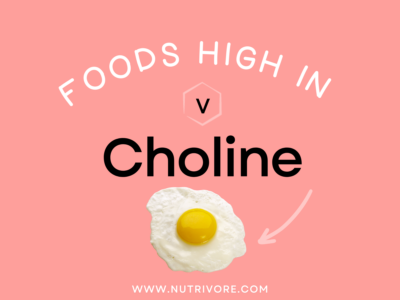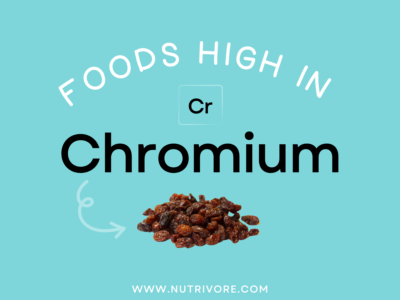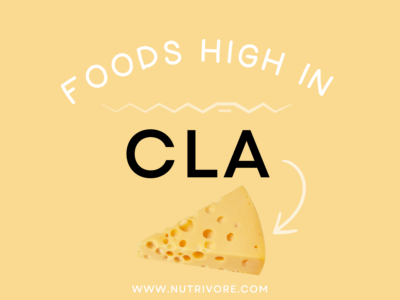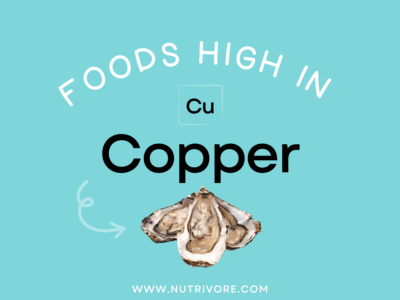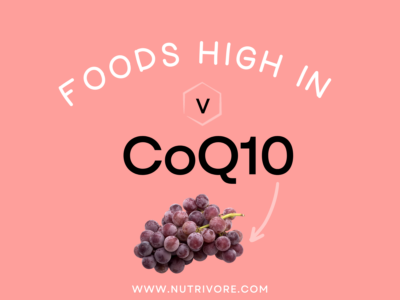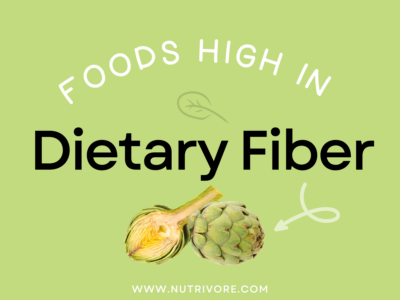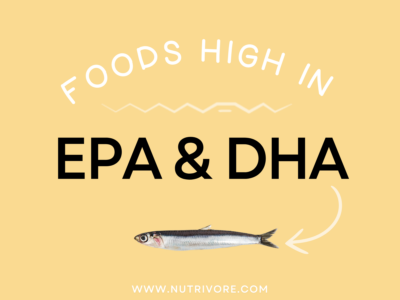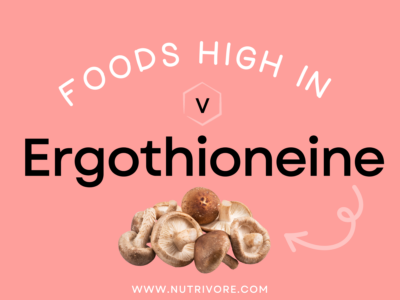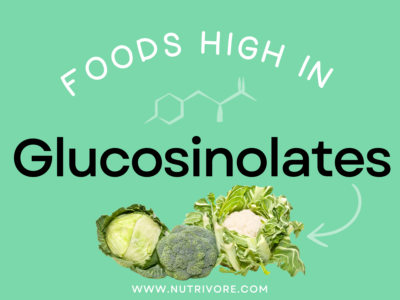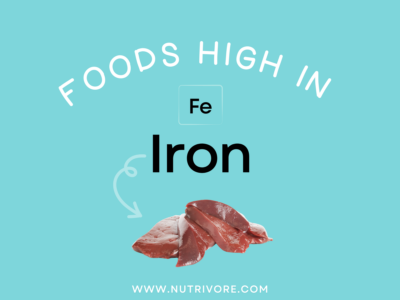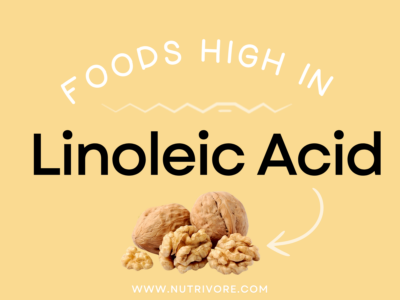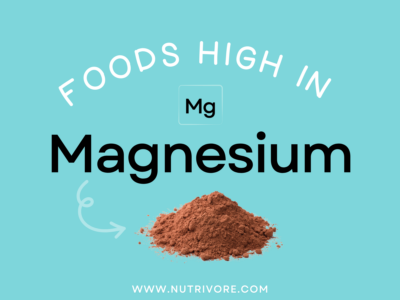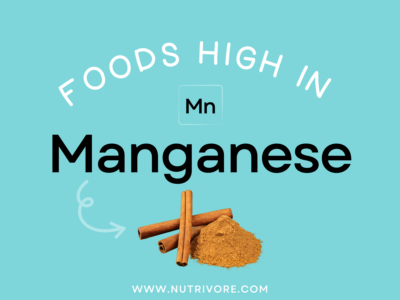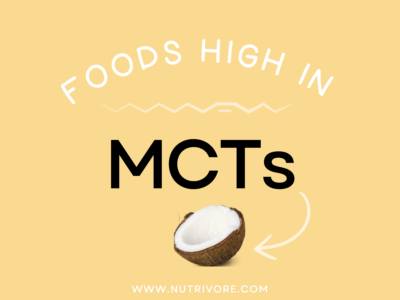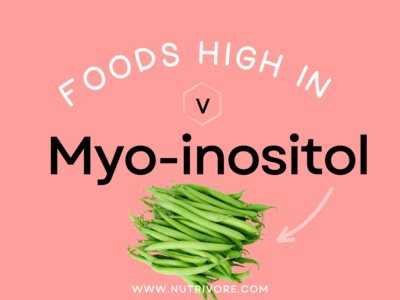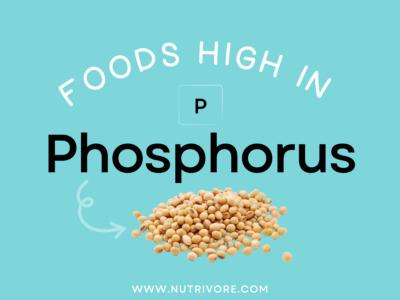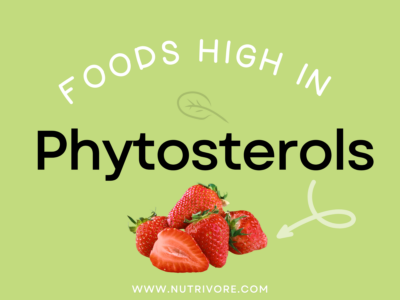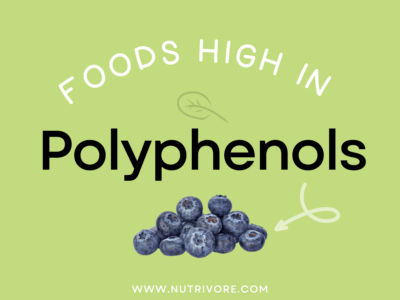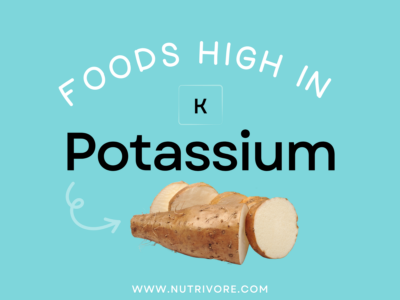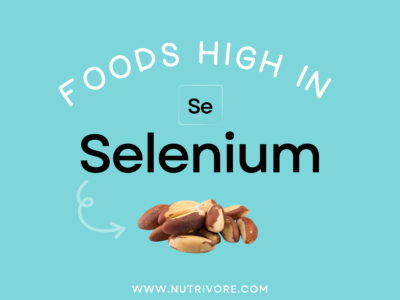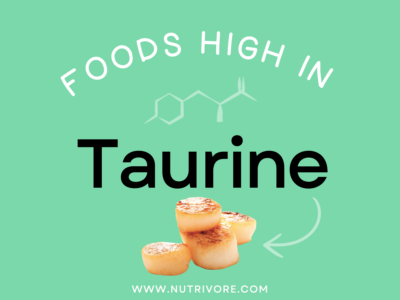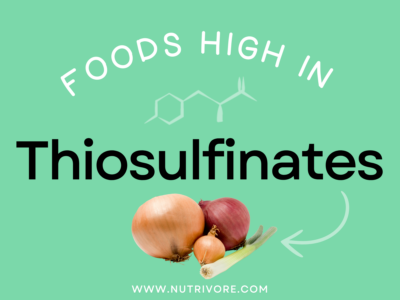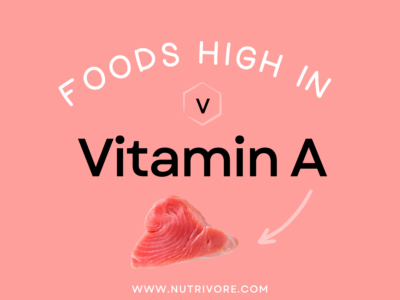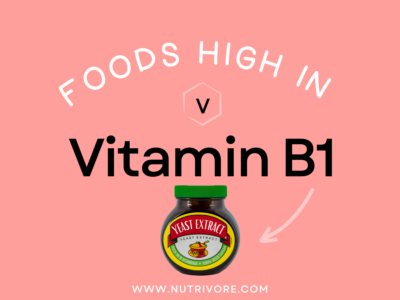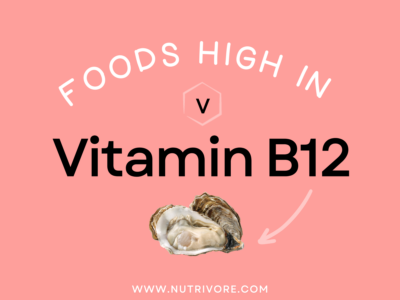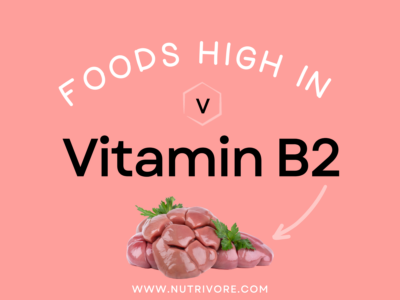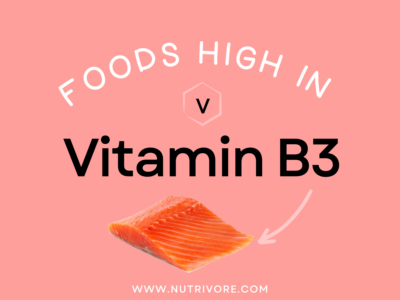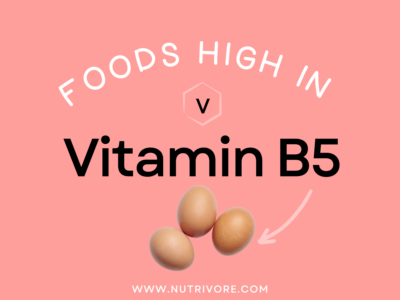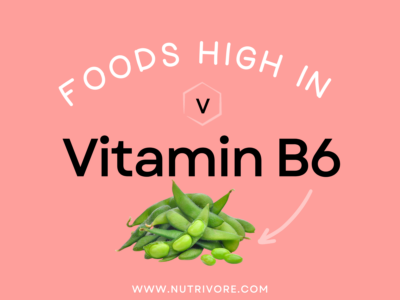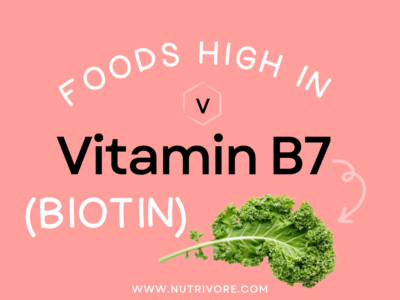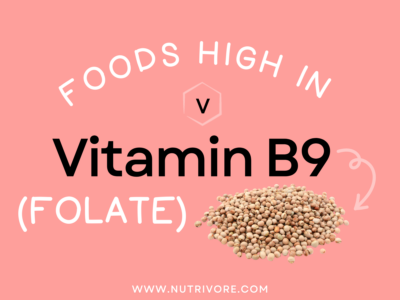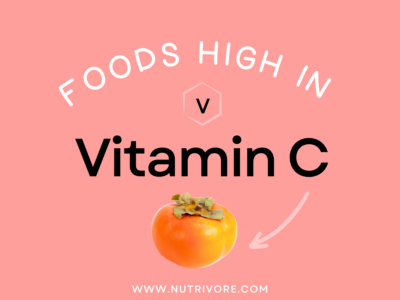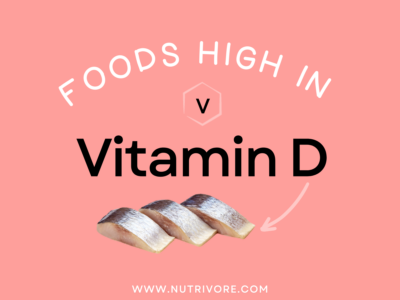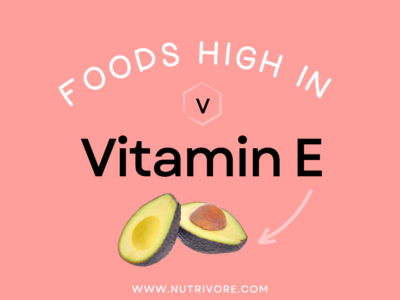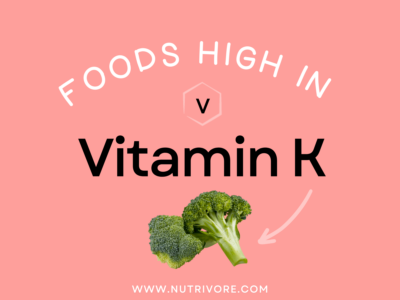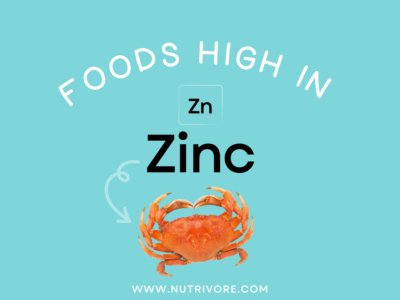Table of Contents[Hide][Show]
Top 5 Common Food Sources of Iodine
Looking to get more mcg of iodine in your diet? Look no further! My team and I have crunched the numbers and did all the math to determine the top 5 common food sources of this important mineral, per serving. Getting enough iodine through healthy eating is important since a large collection of studies show that getting nutrients from dietary supplements or multivitamins doesn’t improve health outcomes compared to getting nutrients from foods!
| Rank | Food | Nutrivore Score | Serving Size (Raw) | Iodine (µg/serving) | % Daily Value |
|---|---|---|---|---|---|
| 1 | Kelp Seaweed | 700 | 1 cup | 78497.9 | 52332 |
| 2 | Wakame Seaweed | 841 | 1 cup | 3296.4 | 2198 |
| 3 | Haddock | 464 | 4 oz / 115 g | 491.5 | 328 |
| 4 | Crab, Average1 | 1096 | 4 oz / 115 g | 252.3 | 168 |
| 5 | Shrimp, Mixed Species | 535 | 4 oz / 115 g | 241.5 | 161 |
Want to know more about this important mineral including what iodine does in the body, how much iodine we need, what happens if we have low iodine levels or if our iodine intake is too high, and even more awesome good sources of iodine? Keep reading to learn all there is to know!
Learn What Foods Are the Best Sources of Every Nutrient
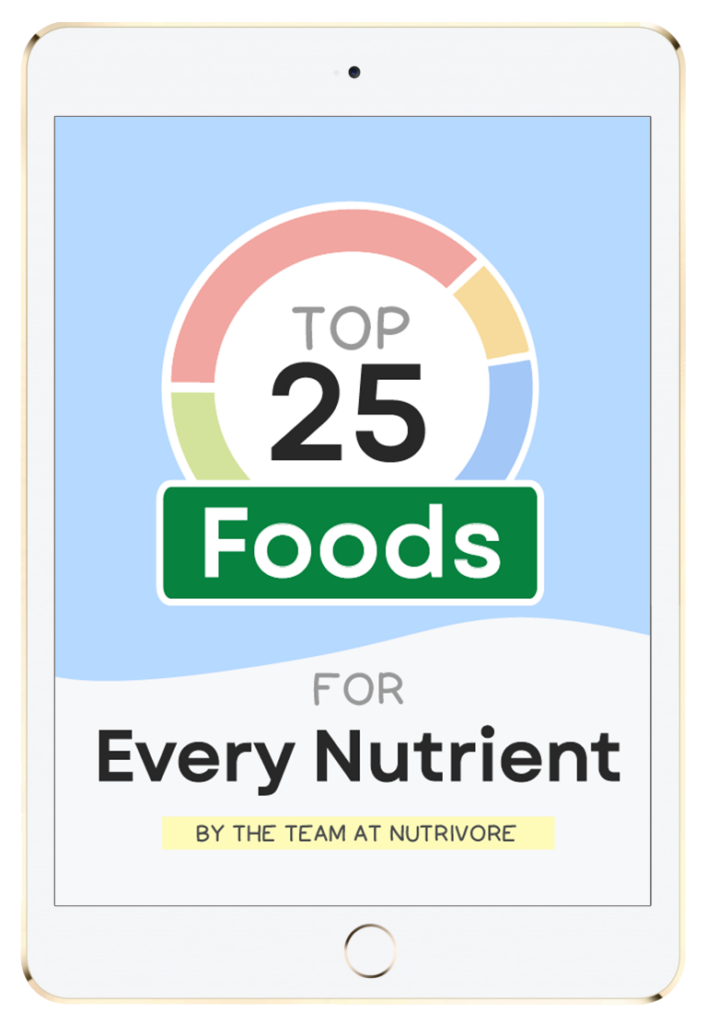
The Top 25 Foods for Every Nutrient
The Top 25 Foods for Every Nutrient e-book is a well-organized, easy-to-use, grocery store-friendly guide to help you choose foods that fit your needs of 43 important nutrients while creating a balanced nutrient-dense diet.
Get two “Top 25” food lists for each nutrient, plus you’ll find RDA charts for everyone, informative visuals, fun facts, serving sizes and the 58 foods that are Nutrient Super Stars!
Buy now for instant digital access.
What Is Iodine and What Does It Do?
Iodine is a trace mineral abundant in some ocean-based foods, particularly seaweeds, fish, and shellfish. Its chief role is as a structural component of thyroid hormones; in fact, the thyroid gland contains up to 80% of all the iodine in the adult human body!
Through its role in thyroid hormone production, iodine plays roles in endocrine health, metabolism, reproductive function, carbohydrate absorption, fatty acid release, growth, and development. Iodine has shown potential anti-cancer and antioxidant activity, and is particularly important during pregnancy for preventing complications like preeclampsia, miscarriage, preterm delivery, and stillbirth. Iodine is also critical for the central nervous system development of children.
Globally, iodine deficiency is widespread, with about 30% of the world’s population consuming inadequate amounts. Iodine deficiency can lead to goiter (enlarged thyroid) and hypothyroidism, as well as spectrum of irreversible behavioral and physical problems (known as congenital iodine deficiency syndrome) in children born from iodine-deficient mothers.
Learn more about iodine here.
Iodine Deficiency
Despite the implementation of iodine fortification programs in over 120 countries to combat widespread deficiency, inadequate dietary iodine remains a significant global issue. It is considered the leading preventable cause of brain damage worldwide. Approximately 30% of the global population, including one-third of school-aged children, are estimated to have insufficient iodine intake.
Groups At Risk
Those at higher risk of iodine deficiency include:
- vegans who do not consume iodized salt or iodine-rich seaweed (since meat and dairy products are common sources of iodine),
- individuals with higher iodine requirements (infants and pregnant or lactating people), and
- people on special diets that exclude seafood and/or iodized salt.
Learn more here.
Symptoms of Deficiency
Iodine deficiency can lead to a range of health issues known as iodine deficiency disorders. Early signs include goiter (enlarged thyroid), caused by persistently high TSH levels as the thyroid struggles to compensate for low iodine levels. If untreated, deficiency progresses to hypothyroidism, which can impair growth, brain development, and overall health, especially in infants and during pregnancy. Severe cases in pregnancy can result in congenital iodine deficiency syndrome, causing irreversible mental and physical impairments in offspring. In adults, hypothyroidism manifests as fatigue, cold intolerance, weight gain, constipation, and psychological effects like apathy and reduced productivity. Additionally, iodine deficiency increases the risk of radiation-induced thyroid cancer by enhancing the thyroid’s uptake of radioactive iodine.
Learn more here.
Problems From Excess Iodine
Acute iodine toxicity, though rare, can result from ingesting several grams of iodine at once, causing nausea, vomiting, diarrhea, weak pulse, burning sensations in the mouth or stomach, fever, and even coma. People with conditions like Graves disease, Hashimoto thyroiditis, or a history of partial thyroidectomy may react adversely to iodine even at lower levels. However, most iodine-rich foods and supplements contain amounts far below the tolerable upper limit, making iodine poisoning uncommon. Those considering high-dose iodine supplementation should seek out medical advice from a healthcare provider due to potential side effects in sensitive individuals.
Learn more here.
How Much Iodine Do We Need?
The following table summarizes the current recommended micrograms of iodine, based on age, gender, or situation and illustrates increased iodine needs are required during pregnancy and when breastfeeding.
It’s also important to note that iodine has some known interactions with other nutrients including iron, selenium, and vitamin A. Learn more here.
| 0 – 6 months | |||||
| 6 months to < 12 months | |||||
| 1 yr – 3 yrs | |||||
| 4 yrs – 8 yrs | |||||
| 9 yrs – 13 yrs | |||||
| 14 yrs – 18 yrs | |||||
| 19 yrs – 50 yrs | |||||
| 51+ yrs | |||||
| Pregnant (14 – 18 yrs) | |||||
| Pregnant (19 – 30 yrs) | |||||
| Pregnant (31 – 50 yrs) | |||||
| Lactating (14 – 18 yrs) | |||||
| Lactating (19 – 30 yrs) | |||||
| Lactating (31 – 50 yrs) |
Nutrient Daily Values
Nutrition requirements and recommended nutrient intake for infants, children, adolescents, adults, mature adults, and pregnant and lactating individuals.
More Food Sources of Iodine
The richest sources of iodine are sea vegetables, particularly brown seaweeds like kelp, kombu and wakame, as well as nori in the red algae family. Fish, shellfish, eggs, and dairy products (such as Greek yogurt) also provide significant amounts of iodine. Some fruits and grains contain iodine too, but the amount varies based on the iodine content of the soil they’re grown in—soil in coastal regions tends to be higher in iodine, while inland and mountainous areas typically have lower levels. Table salt is commonly fortified with iodine (iodized salt), though specialty salts like sea salt, kosher salt, Himalayan salt, and fleur de sel are not.
Certain foods, known as goitrogens, can inhibit iodine uptake by the thyroid and potentially interfere with thyroid hormone production. These include cassava, soy, millet, sweet potatoes, beans, and cruciferous vegetables like broccoli, cauliflower, cabbage, and Brussels sprouts. However, studies indicate these foods are unlikely to pose a risk unless consumed in very large amounts or alongside existing iodine deficiency. Bottom line, there’s no need to avoid these nutrient-dense plant foods!
Best Food Sources of Iodine
The following are iodine-rich foods, containing at least 50% of the recommended dietary allowance per serving, making them our best sources of iodine!
Good Food Sources of Iodine
The following foods are also excellent or good sources of iodine, containing at least 10% (and up to 50%) of the daily value per serving.
Top 5 Common Food Sources
If you’re looking for top 5 common food sources of other important nutrients check out these posts!
cITATIONS
Expand to see all scientific references for this article.
Angermayr L, Clar C. Iodine supplementation for preventing iodine deficiency disorders in children. Cochrane Database Syst Rev. 2004;(2):CD003819. doi: 10.1002/14651858.CD003819.pub2. Update in: Cochrane Database Syst Rev. 2018 Nov 29;11:CD003819. doi: 10.1002/14651858.CD003819.pub3. PMID: 15106221.
Bath SC, Steer CD, Golding J, Emmett P, Rayman MP. Effect of inadequate iodine status in UK pregnant women on cognitive outcomes in their children: results from the Avon Longitudinal Study of Parents and Children (ALSPAC). Lancet. 2013 Jul 27;382(9889):331-7. doi: 10.1016/S0140-6736(13)60436-5.
Behrouzian R, Aghdami N. Urinary iodine/creatinine ratio in patients with stomach cancer in Urmia, Islamic Republic of Iran. East Mediterr Health J. 2004 Nov;10(6):921-4.
Bougma K, Aboud FE, Harding KB, Marquis GS. Iodine and mental development of children 5 years old and under: a systematic review and meta-analysis. Nutrients. 2013 Apr 22;5(4):1384-416. doi: 10.3390/nu5041384. Erratum in: Nutrients. 2014 Dec;6(12):5770-1.
Chen ZP, Hetzel BS. Cretinism revisited. Best Pract Res Clin Endocrinol Metab. 2010 Feb;24(1):39-50. doi: 10.1016/j.beem.2009.08.014.
Eskin BA, Grotkowski CE, Connolly CP, Ghent WR. Different tissue responses for iodine and iodide in rat thyroid and mammary glands. Biol Trace Elem Res. 1995 Jul;49(1):9-19. doi: 10.1007/BF02788999.
Groufh-Jacobsen S, Hess SY, Aakre I, Folven Gjengedal EL, Blandhoel Pettersen K, Henjum S. Vegans, Vegetarians and Pescatarians Are at Risk of Iodine Deficiency in Norway. Nutrients. 2020 Nov 20;12(11):3555. doi: 10.3390/nu12113555.
Hughes K, Eastman C. Goitre – causes, investigation and management. Aust Fam Physician. 2012 Aug;41(8):572-6.
Hynes KL, Otahal P, Hay I, Burgess JR. Mild iodine deficiency during pregnancy is associated with reduced educational outcomes in the offspring: 9-year follow-up of the gestational iodine cohort. J Clin Endocrinol Metab. 2013 May;98(5):1954-62. doi: 10.1210/jc.2012-4249.
Institute of Medicine (US) Panel on Micronutrients. Dietary Reference Intakes for Vitamin A, Vitamin K, Arsenic, Boron, Chromium, Copper, Iodine, Iron, Manganese, Molybdenum, Nickel, Silicon, Vanadium, and Zinc. Washington (DC): National Academies Press (US); 2001. 8, Iodine.
Iodine: Fact Sheet for Health Professionals. National Institutes of Health (NIH) Office of Dietary Supplements. 28 Apr 2022.
Kessler JH. The effect of supraphysiologic levels of iodine on patients with cyclic mastalgia. Breast J. 2004 Jul-Aug;10(4):328-36. doi: 10.1111/j.1075-122X.2004.21341.x.
Li JH, He ZH, Bansal V, Hennessey JV. Low iodine diet in differentiated thyroid cancer: a review. Clin Endocrinol (Oxf). 2016 Jan;84(1):3-12. doi: 10.1111/cen.12846. Epub 2015 Jul 29. PMID: 26118628.
Qian M, Wang D, Watkins WE, Gebski V, Yan YQ, Li M, Chen ZP. The effects of iodine on intelligence in children: a meta-analysis of studies conducted in China. Asia Pac J Clin Nutr. 2005;14(1):32-42.
Schneider MJ, Fiering SN, Thai B, Wu SY, St Germain E, Parlow AF, St Germain DL, Galton VA. Targeted disruption of the type 1 selenodeiodinase gene (Dio1) results in marked changes in thyroid hormone economy in mice. Endocrinology. 2006 Jan;147(1):580-9. doi: 10.1210/en.2005-0739.
Schomburg L. Selenium, selenoproteins and the thyroid gland: interactions in health and disease. Nat Rev Endocrinol. 2011 Oct 18;8(3):160-71. doi: 10.1038/nrendo.2011.174.
Shrivastava A, Tiwari M, Sinha RA, Kumar A, Balapure AK, Bajpai VK, Sharma R, Mitra K, Tandon A, Godbole MM. Molecular iodine induces caspase-independent apoptosis in human breast carcinoma cells involving the mitochondria-mediated pathway. J Biol Chem. 2006 Jul 14;281(28):19762-71. doi: 10.1074/jbc.M600746200.
Stagnaro-Green A, Abalovich M, Alexander E, Azizi F, Mestman J, Negro R, Nixon A, Pearce EN, Soldin OP, Sullivan S, Wiersinga W; American Thyroid Association Taskforce on Thyroid Disease During Pregnancy and Postpartum. Guidelines of the American Thyroid Association for the diagnosis and management of thyroid disease during pregnancy and postpartum. Thyroid. 2011 Oct;21(10):1081-125. doi: 10.1089/thy.2011.0087.
Zimmermann MB. Interactions of vitamin A and iodine deficiencies: effects on the pituitary-thyroid axis. Int J Vitam Nutr Res. 2007 May;77(3):236-40. doi: 10.1024/0300-9831.77.3.236.
Zimmermann MB. Iodine: it’s important in patients that require parenteral nutrition. Gastroenterology. 2009 Nov;137(5 Suppl):S36-46. doi: 10.1053/j.gastro.2009.07.074.
Zimmermann MB. The influence of iron status on iodine utilization and thyroid function. Annu Rev Nutr. 2006;26:367-89. doi: 10.1146/annurev.nutr.26.061505.111236.



